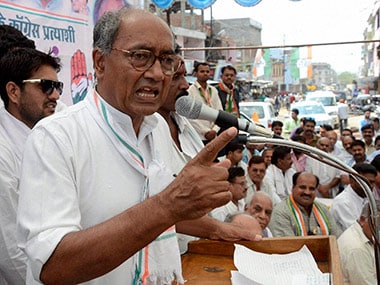A new global study by Ipsos for the ‘BBC Crossing Divides’ finds that people are split over whether differences in political opinions in their country are healthy or dangerous for society. The survey was carried out online among 19,782 adults under 65 across 27 countries from 26 November to 7 December, 2018.
Half of the respondents of the study believe that it’s important to listen to people with different opinions; only one in three say they are comfortable sharing their political views with others; half of them believe that people with opposing views are unlikely to change their opinions regardless of what evidence is presented to them; and there are mixed views on whether social media has enabled more people to participate in social debates. Also, a higher number of respondents believe that immigration has had a negative impact on their country.
Much of these findings hold true for the respondents from India, significant in the run-up to the Lok Sabha elections expected to begin in May.

– 22 percent of the Indian respondents believe that the difference in people’s political views are so divisive that it is dangerous for society; 21 percent think such differences are healthy for society; and 12 percent think it has no significant impact.
– 34 percent Indians agree that there is more danger today than there was 20 years ago because of divisions between people with different political views; and 24 percent believe there is less danger today in comparison.
– 32 percent say it is important to listen to people different from them, even if they disagree with the other person.
– Only a mere 18 percent of the Indian respondents are comfortable sharing their political opinion with others with opposing views; 24 percent would share their political views with people who hold the same opinion.
– 27 percent of them feel more comfortable in groups of people who are similar to them (the same as the respondents from the far more conservative Saudi Arabia).
– 18 percent of the Indian respondents believe that people with opposing political views genuinely don’t care about the future of the country, while 9 percent strongly disagree with this opinion; 16 percent of them believe those with a different political opinion are not worth having a conversation with; and 20 percent of them strongly agree that they are unlikely to change their opinion regardless of the evidence presented to them.
– 68 percent agree that social media platforms such as Facebook and Twitter give a voice to people who would not normally participate in debates and discussions on social issues; 8 percent disagree.
– 63 percent of the Indian respondents agree that social media is breaking down barriers and becoming a communication conduit between the public and people in power; 11 percent disagree.
– 64 percent agree that social media platforms are making debates about social issues much more divisive than they used to be.
– 43 percent are of the opinion that immigration has had a positive impact on India over 20 percent who believe it has had a negative impact on the country.
– 19 percent of Indians are likely to be friends with people from the same ethnicity and 18 percent with people who share the same religious faith or beliefs.
– 16 percent are friends with people who share the same political views.
Of the 27 countries surveyed online, 15 generated nationally representative samples in their countries. These include Argentina, Australia, Belgium, Canada, France, Germany, Great Britain, Hungary, Italy, Japan, Poland, South Korea, Spain, Sweden, and the United States.
source: Firstpost.com







































